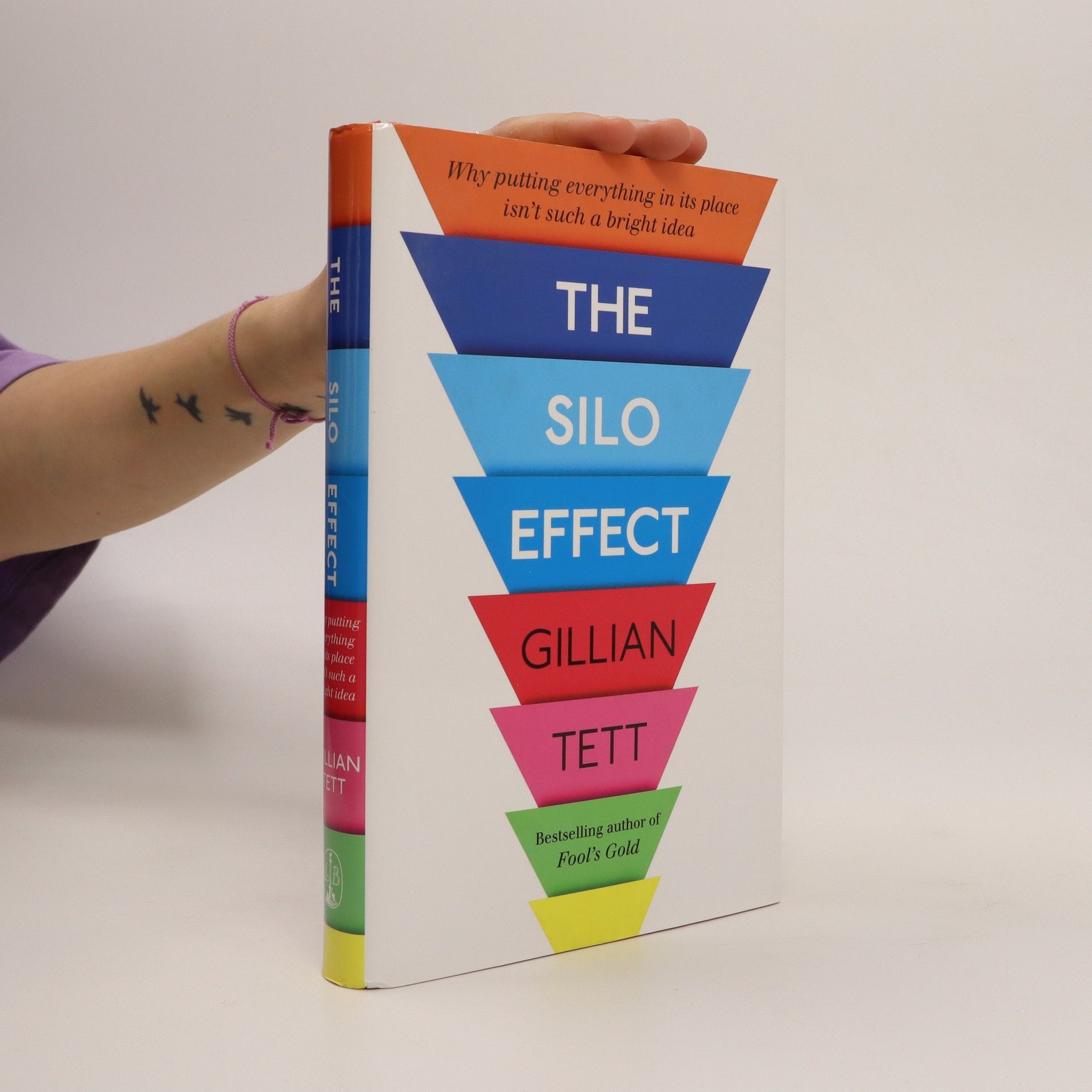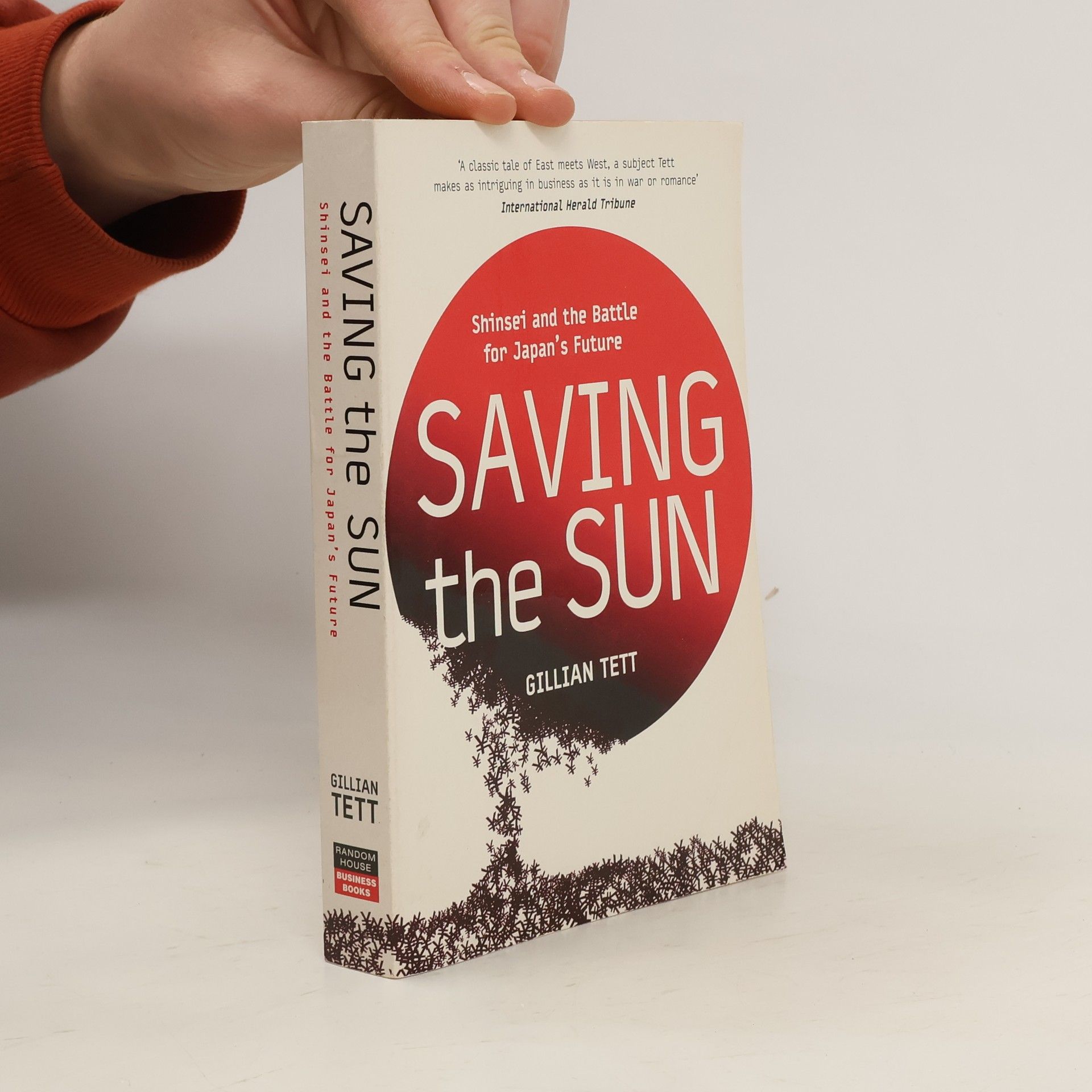Saving The Sun
- 384 Seiten
- 14 Lesestunden
'Saving the Sun' takes a bank that has been at the cutting edge of Japan's woes - Shinsei - and uses its story to analyse why Japan's economic problems are so insurmountable.
Gillian Tett ist eine britische Autorin und Journalistin, die für ihre vorausschauenden Warnungen vor drohenden Finanzkrisen bekannt ist. Als Kolumnistin für Märkte und Finanzen bei der Financial Times befasst sie sich eingehend mit den komplexen Finanzinstrumenten, die wirtschaftliche Instabilität untermauern können. Ihre Arbeit beleuchtet die komplizierten Mechanismen, die Marktvolatilität antreiben, und deren breitere Auswirkungen auf die Weltwirtschaft. Tett bietet den Lesern eine scharfe, aufschlussreiche Perspektive auf die oft verborgenen Kräfte, die die Finanzlandschaften prägen.






'Saving the Sun' takes a bank that has been at the cutting edge of Japan's woes - Shinsei - and uses its story to analyse why Japan's economic problems are so insurmountable.
A revelatory model that explains how we buy, sell, work and live. For over a century, anthropologists have immersed themselves in unfamiliar cultures, uncovering the hidden rituals that govern how people act. Now, a new generation of anthropologists are using these methods in a different context - to illuminate the behaviour of businesses and consumers around the globe. In Anthro-Vision, Gillian Tett - bestselling author, Financial Times journalist, and anthropology PhD - reveals how anthropology can make sense of the corporate world. She outlines how anthropology helps explain consumer behaviour - revealing the 'webs of meaning' that underpin our shopping habits, and unpicking the subtle cultural shifts driving the rise of green business. She explores how anthropology can shed light on the workplace, identifying the hidden tribes within the office, and pinpointing which rituals are binding together a team. And she shows how we can all use anthropology in our own lives, too: helping us make better decisions, navigate risk - even work out what our peers are really thinking. Along the way, Tett draws on stories from Tajik villages and Amazon warehouses, Japanese classrooms and Wall Street trading floors, all to reveal the power of anthropology in action. The result is a wholly new way to understand human behaviour. In a short-sighted world, we can all learn to see clearly - using the power of Anthro-Vision.
A revelatory model that explains how we buy, sell, work, and live. Meet the business anthropologists uncovering the hidden codes that shape our lives. Their methods span from supermarkets to tech firms, offering a new perspective on human behavior: anthro-vision. This engaging work argues for the integration of anthropology in business for success. Praised by Daniel Kahneman as "absolutely brilliant," it promises to turn your world upside down with profound insights. Tim Harford describes it as fun and bursting with important revelations, while Thomas Friedman calls it a terrific piece of work. Melinda Gates emphasizes its relevance for those aiming to create a more equitable world, advocating for new empathy to tackle twenty-first-century challenges. Gillian Tett provides a fresh intellectual framework rooted in anthropology and her groundbreaking journalism, aiming to transform approaches to society's most complex issues. Niall Ferguson highlights the need for an antidote to tunnel vision in a volatile world, positioning anthro-vision as essential. This timely call encourages decision-makers to move beyond reliance on big data and embrace the complexities of human life.
The Inside Story of J.P. Morgan and How Wall St. Greed Corrupted Its Bold Dream and Created a Financial Catastrophe - Updated with New Preface and Afterword
From award-winning Financial Times journalist Gillian Tett, who warned Wall Street leaders of an impending crisis well ahead of time, this narrative uncovers the astonishing story behind the 2008 financial meltdown. Tett draws on exclusive access to J.P. Morgan CEO Jamie Dimon and a close-knit group of bankers known as the "Morgan Mafia," alongside interviews with key figures like Treasury Secretary Timothy Geithner. The book vividly illustrates how the Morgan team's innovative ideas for credit derivatives ignited a banking revolution that spiraled out of control. Beginning with a pivotal brainstorming session in 1994 in Boca Raton, where the team devised the exotic financial product, the narrative chronicles how this concept propelled Morgan to the forefront of the derivatives market and fueled an extraordinary banking boom. However, when their derivatives collided with the housing boom, the ambitions of major banks like Citigroup, UBS, and Merrill Lynch led to catastrophic consequences, despite J.P. Morgan's cautious approach. Tett’s insights into how Dimon and his team navigated these turbulent waters illuminate not only their successful escape from the chaos but also the missed opportunities for the broader banking sector and regulators to recognize the looming risks. This compelling tale of brilliance and ambition serves as a crucial exploration of the factors behind the worst economic crisis since the Great Depression.
* The brilliant and insightful new book from Gillian Tett, author of the bestselling Fool's Gold
The silo Effect is a sharp, visionary and inspiring work with the insight, prescriptions and power to remove our organisational blinkers and transform the way we think for the better
An award-winning columnist and journalist describes how businesses that structure their teams into functional departments, or "silos, " actually hinder work, cripple innovation, restrict thinking and force normally smart people to ignore risks and opportunities. --Publisher's description.
W czasach, gdy świat biznesu zdominowany jest przez technologię i analizę danych, Gillian Tett wzywa do zmiany sposobu myślenia – na antropologiczny (skupiony na człowieku). Po co? Aby lepiej odczytywać zachowania klientów, rynków i organizacji, a także stawić czoła wyzwaniom, z jakimi mierzy się społeczeństwo. Siła empatii uczy, jak odczytywać myśli i emocje innych ludzi, a przez to nie tylko zrozumieć inne kultury, lecz także spojrzeć na własne otoczenie z nowej perspektywy. Pokazuje, jak ta prosta, a zarazem rewolucyjna strategia przysłużyła się firmom takim jak Intel, Nestlé, General Motors, Procter & Gamble, Mars, Danica czy wielu innym oraz jak można ją wykorzystać na co dzień zarówno w życiu, jak i w biznesie. Nie wiesz, jak się zachować na spotkaniu z przedstawicielami zagranicznej firmy? Chcesz zrozumieć fenomen ekonomiczny Doliny Krzemowej? A może oglądasz obrady sejmu i zastanawiasz się, czy za chaotycznymi wystąpieniami niektórych polityków kryje się starannie przemyślana strategia? Jeśli chcesz się nauczyć, jak ważna jest empatia w biznesie i w codziennym życiu, ta książka jest właśnie dla Ciebie.